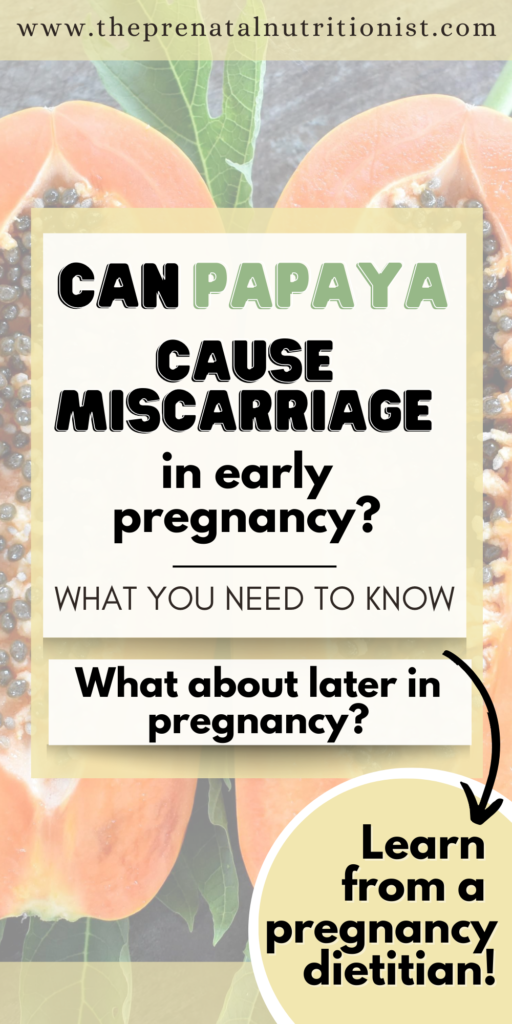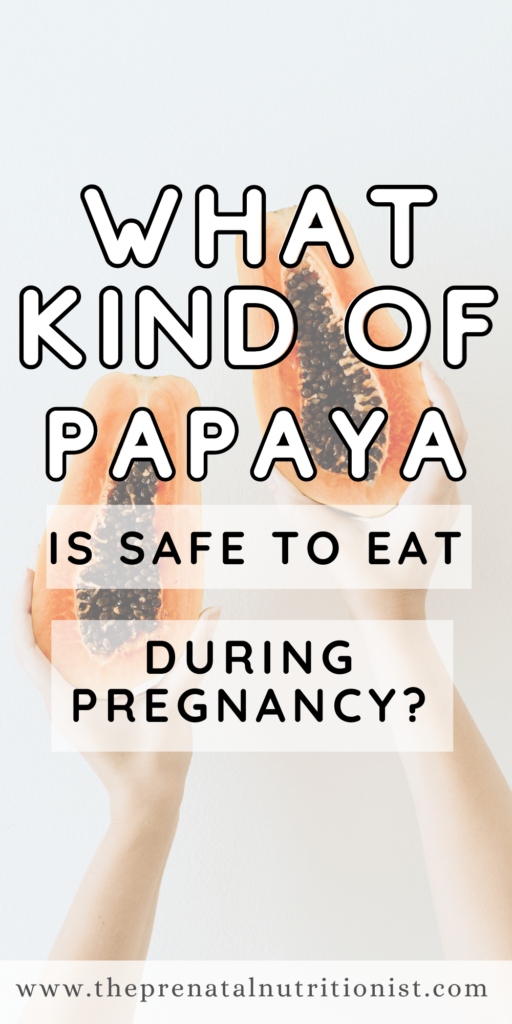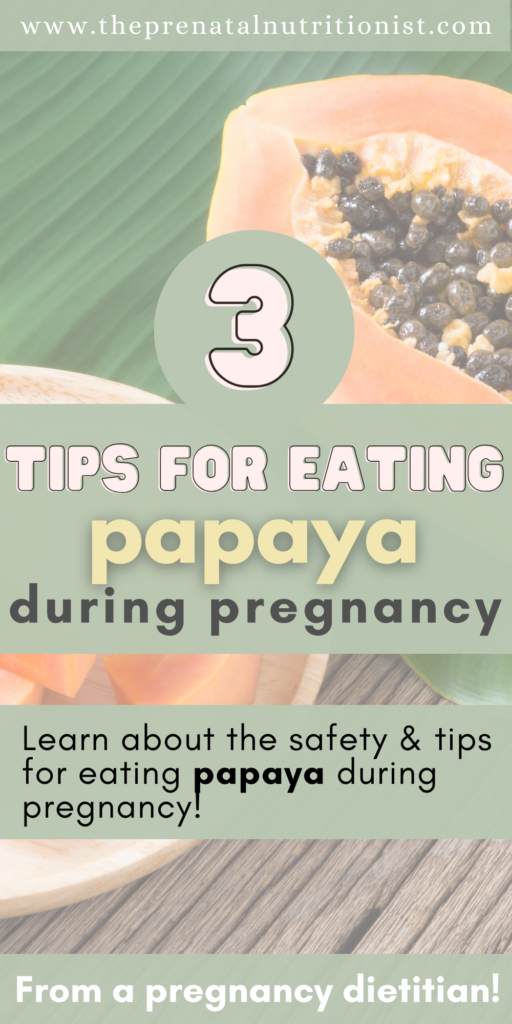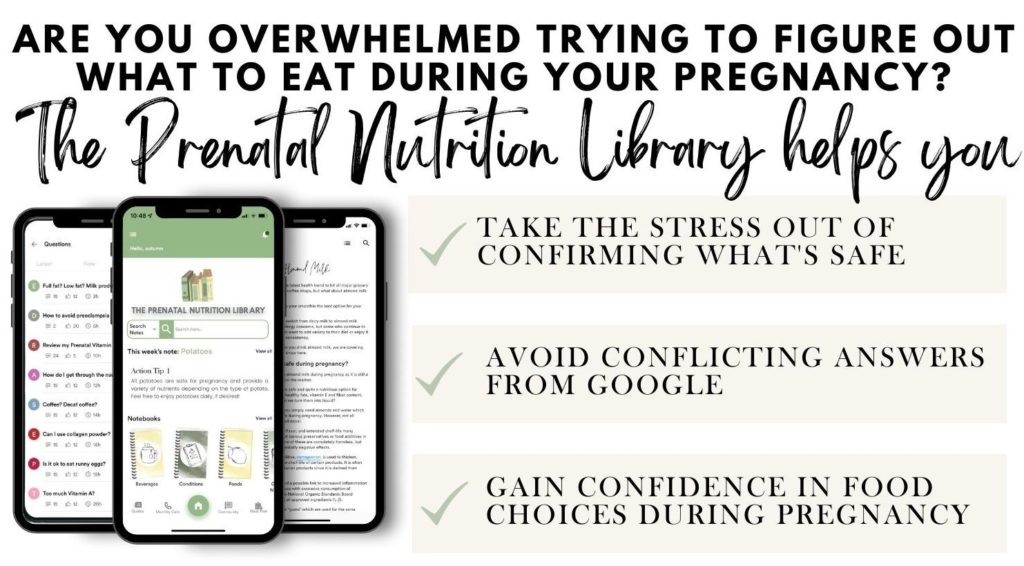
Pregnant women need to eat a variety of nutritious foods to support their growing baby. Fresh fruit, particularly papaya, is a good source of important vitamins and minerals and a great addition to a healthy pregnancy diet.
This tropical fruit provides expectant mothers folate, fiber, potassium, B vitamins, vitamin C, beta-carotene, and even a tiny amount of choline. Papaya contains vitamin B9, also known as folate, which is an important nutrient to support neurological development, prevent anemia, and is required for DNA replication. Folate is required in higher amounts during pregnancy and is crucial in closing the neural tube in the first two months of pregnancy.
Outside of pregnancy, papaya is often eaten both ripe and unripe or semi-ripe. However, there is some confusion when it comes to eating papaya during pregnancy. This is why I’m dedicating this post to talking about whether or not papaya is safe for pregnancy and addressing the concern of “Can papaya cause miscarriage in early pregnancy?”.

Can Papaya Cause Miscarriage In Early Pregnancy?
With so much information out there about what you should or shouldn’t eat during pregnancy, it’s hard to keep track. (Check out my pregnancy and spicy food post to read more about another debated topic!)
When discussing eating fresh fruit (like strawberries, oranges, and pomegranate) while pregnant, papaya is often a topic of debate. The sweet, juicy tropical fruit is full of flavor and offers a myriad of nutritional benefits, but should pregnant women avoid it? Is it safe to eat during pregnancy? Can it cause miscarriage?
Ripe papaya, with yellow skin, is safe to eat during pregnancy. However, unripe or semi-ripe papaya with green skin should be avoided in high amounts during pregnancy.
Small amounts of unripe papaya are probably fine. So, don’t panic if you have eaten something like a Thai salad that has unripe papaya slices on it. However, it’s ideal to do your best to avoid this during pregnancy to be safe. Unripe or semi-ripe green papaya contains latex and papain. In a few small studies, high amounts of latex triggered uterine contractions.

Latex and Papain In Unripe Papaya
It’s also generally recommended for pregnant women to avoid unripe and semi-ripe papayas because they contain a substance called latex. Latex is also a source of papain. These two components could be a concern for pregnant women for a few reasons.
In small studies and animal studies, latex has been reported to trigger uterine contractions that could lead to miscarriage. Latex allergies are rare, but if you have a latex allergy, this may be another reason to avoid this fruit.
Additionally, the type of latex in unripe papaya contains papain. Papain is an enzyme known to increase the chances of embryotoxicity and weaken the vital membranes of the fetus. Embryotoxicity is when substances or factors harm a developing embryo or fetus in a pregnant mother’s womb, potentially causing birth defects or other problems.
Ripe papayas have yellow skin and are a safe fruit option during pregnancy. However, unripe papaya, with skin that is completely green, should be avoided in high amounts. To be on the safe side for both mom and baby, avoid any food or dishes that contain semi-ripe or unripe papaya.
You may also be wondering if pineapple is on the list of foods that should be avoided during pregnancy. You can learn more in my post on eating pineapples while pregnant.

Tips For Eating Papaya In Pregnancy
Only Eat Ripe Papaya
To safely enjoy papaya during pregnancy, make sure the fruit is fully ripe. Completely ripe papaya has yellow skin, an orange-amber flesh, and a soft texture.
In addition to avoiding unripe papaya, it’s generally recommended to avoid consuming papaya seeds and leaves during pregnancy. You should also avoid papayas that have “gone bad” with bruises or black spots.
If you are looking for meal ideas or a pregnancy meal plan, try our free 7-day meal plan that is great for any trimester of pregnancy.

Eat Ripe Papaya in Moderation During Pregnancy
Papayas are pretty high in sugar (fructose), which means they will cause an increase in your blood sugar even though they come with plenty of awesome nutrients. For this reason, it’s best to consume papaya in moderation. One serving of papaya is about 1/2 cup.
Everyone, especially those with gestational diabetes, will benefit from pairing fruit like papaya with protein and fat. For example, Greek yogurt, cottage cheese, or hard-boiled eggs.
Ripe papayas are great sources of nutrition for pregnant women, but unripe papayas can pose a risk and, thus, should be avoided in high amounts.
Fresh fruit is a valuable part of a healthy pregnancy diet. Most fruits can be safely enjoyed during pregnancy. To safely enjoy papaya while you’re expecting, ensure it’s completely ripe and clear of any bruising or black spots, and avoid eating papaya seeds and leaves.
For more valuable information on nutrition during all stages of pregnancy, sign up for The Prenatal Nutrition Library. When you sign up, you can search nutrients, foods, supplements, labs, and more for a quick, evidence-based answer right at your fingertips with our app. Download the app for FREE on Apple or Android for a peek inside and get a FREE 1-week meal plan!










